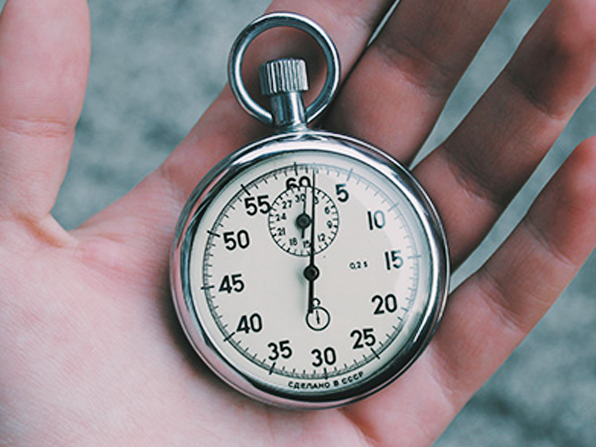
Many walk through the gym door or message me on social media after trying unhealthy ways to lose weight. Most of the time, they feel worse than when they started.
Over the years, as a personal trainer and online coach, I've witnessed the physical and emotional toll these methods take on people who genuinely want to improve their health.
The weight loss industry is packed with misleading myths and advice—information that can steer you toward approaches that damage your metabolism, muscle mass, and even your relationship with food.
While these methods might help you lose weight initially, they often lead to long-term weight gain, leaving you frustrated and discouraged.
If you want to achieve lasting results, I encourage you to adopt a healthier lifestyle.
Here, I'll cover five common but harmful weight loss strategies and why they should be avoided.
As Mackenzie Banta once said:
“The healthiest weight loss is the steadiest weight loss.”
Aiming for Rapid Weight Loss with Unrealistic Goals
I regularly meet folks who want to lose 10-15 pounds in a week or two for an upcoming event.
Their expectations have been shaped by fad diets promising to “melt away fat” or celebrities claiming to have lost 20 pounds in a month.
The problem is that people often slash their calories dramatically (think 800-1000 per day) or try extreme measures like juice cleanses.
The reason is that your body fights back when you attempt to lose weight too quickly. When you set unrealistic targets, like losing more than 1-2 pounds per week…you're setting yourself up for methods that cannot be sustained, physically or mentally.
If you want to establish balanced weight loss goals that work, I give examples in this article.
Why You Should Avoid Rapid Weight Loss Methods
Such methods trick your body into survival mode. When calories are severely restricted, your metabolism slows down to conserve energy, making subsequent weight loss even harder.
These aggressive approaches initially cause you to lose water and stool weight. And when you return to normal eating patterns, your slowed metabolism causes even more weight gain.
I'm not a doctor, but I have read enough to tell you that these methods also wreak havoc on important bodily functions.
Hormones that control appetite get disrupted. Blood pressure may drop too low, causing dizziness, or spike dangerously high when you resume normal eating.
The psychological impact of trying to lose weight quickly is equally damaging. It creates cycles of restriction, guilt, and binging that can persist for years.
Focusing on Losing Weight Rather Than Body Fat
One of the biggest mistakes I see people make is fixating on body weight rather than their body composition. Sure, dropping 10 pounds in a month sounds thrilling, but what's the point if you still look and feel the same?

The scale can be misleading…it doesn't differentiate between water, muscle, and fat.
Some diets lead to rapid weight loss, creating the illusion of fat loss…even though much of what’s lost is valuable muscle tissue. Many have been stuck in this trap for years, constantly losing and regaining the same weight.
I've had female clients who initially resisted strength training because they feared “bulking up.” They didn't realize that gaining a pound of muscle while losing a pound of fat would transform their appearance.
Why You Should Avoid Losing Just Body Weight
When you focus solely on weight loss rather than fat loss, you're likely to lose substantial muscle mass along with fat. Your muscle tissue is metabolically active, burning calories even at rest.
As muscle decreases, your metabolism slows dramatically, making it increasingly difficult to maintain weight, let alone continue losing fat.
The scale also fails to reflect other positive changes happening in your body.
Many people I work with improve their blood pressure, cholesterol levels, and energy while barely moving the scale. You'll miss celebrating these significant health victories by fixating on weight alone.
This mindset also creates an unhealthy relationship with both food and exercise.
Instead of viewing physical activity as a way to strengthen your body, it becomes a punishment. You do it to make the numbers go down. Food becomes the enemy rather than nourishment. A perspective that is both mentally and physically exhausting.
Starving or Following Overly Restricting Diets
I know people who saw the signs they must lose weight and tried virtually every restrictive diet imaginable – from consuming nothing but cabbage soup to eliminating all carbs or fats.
Some admitted to me they've gone days eating fewer than 500 calories, believing hunger pangs were proof the diet was “working.” Others have followed extremely rigid eating programs that eliminate most foods, leaving them with a handful of “safe” options.
Yes, you'll probably drop several pounds in the first week or two of severely restricting your calories or cutting out entire food groups.
I've seen the excitement when someone loses 6-7 pounds in their first ten days of a low-calorie diet. But trust me, that doesn't lead to healthy weight loss.
These diets fail to provide the nutrients your body needs for basic functions. That's not the way to go if you want to start a weight loss journey and succeed.
Why You Should Avoid Starving or Crash Diets
» Eliminating food groups quickly leads to nutritional deficiencies, affecting everything from bone density to brain function and heart health.
» Energy levels plummet when your body lacks adequate fuel. This makes it difficult to maintain not only exercising but even daily activities.
» Muscle loss accelerates with inadequate protein intake, further slowing your metabolism and reducing strength.
» Your social life will suffer as well. Meals with friends will become sources of anxiety rather than enjoyment. I know this from personal experience.
» Overly restrictive approaches have extraordinarily high failure rates, with studies showing 95% of people regain all lost weight within 1-3 years.
Working Out More Than Your Body Can Handle
Many fall into the trap of believing that if some exercise is good, more must be better.
I remember a lady in our gym who did three hours of cardio every single day, convinced that this was the only way to overcome a plateau.
Plateaus are a normal part of weight loss…patience is how you get through them. If you're looking for effective ways to speed up weight loss without risking your health, change your workout routine every month or so.

Extreme approaches to physical activity might seem dedicated on the surface, but they're counterproductive. Most of the time, you'll overreach and then get overtrained.
When you push yourself beyond your capacity to recover, your body doesn't distinguish between the stress of a hard workout and other types of stress…it just knows something's wrong.
And if you ignore your body's warning signals, eventually, your body will give out—often in the form of injury or burnout. I have another article discussing overreaching and overtraining if you're interested.
Why You Should Avoid Overtraining
» First, injury risk increases dramatically when your muscles, tendons, and joints don't have adequate time to repair between workout sessions.
» Then, your immune function becomes compromised, making you more susceptible to illness and interrupting your fitness routine and everyday life.
» Finally, the mental burnout from your unsustainable exercise program can lead to the complete abandonment of physical activity. The result is rapid weight gain and loss of fitness.
Relying Entirely on Weight Loss Supplements
We all take supplements, and there is nothing wrong with that.
As long as you know how to make informed choices and use supplements alongside a proper diet and consistent workouts…you'll be fine.
What frustrates me is seeing people ignoring the fundamentals of nutrition and physical activity and putting their faith in questionable products that promise miracles.
No supplement will do the hard work that leads to long-term weight loss.
My clients and I have had positive experiences with a mild, all-natural fat burner that supports our fitness goals. And it's not just us…over 2,000 SKALD reviews prove it works.
Meanwhile, I regularly see others at the gym using more aggressive supplements, and the side effects are obvious – jitteriness, mood swings, excessive sweating, etc.
Why You Should Avoid Supplement-Only Approaches
Developing a reliance on supplements creates unrealistic expectations, causes health problems, and never leads to proper long-term weight management.
When supplements inevitably fail to deliver dramatic results, the situation gets worse. The disappointment leads to giving up entirely on your weight loss efforts.
Remember, supplements should supplement – NOT replace!
Even top-quality products will not be the primary driver of meaningful, lasting results. They are effective for supporting your efforts, and you must rely on them only for that.



